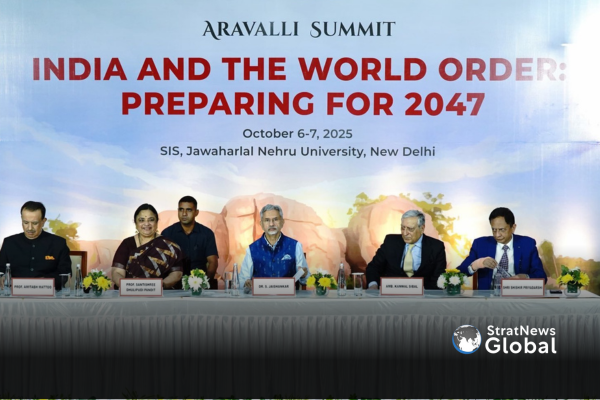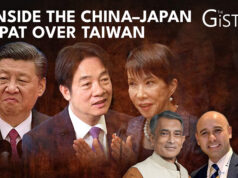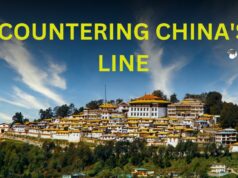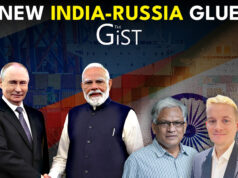The world is undergoing “deep changes across a broad swathe of human activity in a short timeframe”, affecting trade, technology, energy and even warfare, warned External Affairs Minister Dr S. Jaishankar. “The strategic consequences of such deep change are surely profound,” he said. “Cooperation is giving way to confrontation” and long-standing global rules are being “revisited and at times even discarded.”
Addressing the Aravalli Summit on ‘India and the World Order: Preparing for 2047’, held at Jawaharlal Nehru University (JNU) and organised by the Ministry of External Affairs (MEA) along with the Chintan Research Foundation (CRF), Dr Jaishankar pointed out that a third of global manufacturing has shifted to one region, creating new vulnerabilities in supply chains. “Cost is no longer the defining criterion for economic transactions,” he cautioned. “Ownership and security are equally so. End-to-end risks are rising from concentrated production to dependence on key markets.”
Sanctions, asset seizures and competition for critical minerals have “changed the face of global finance,” while advances in weaponry and technology have made war “more stand-off, more impactful, and definitely more risk-prone.”
Jaishankar noted that India must navigate this period of global volatility with confidence, not caution. “We have to safeguard our interests and yet continuously advance up the global hierarchy,” he said. “We have to de-risk our exposures and engagements and yet take risks when necessary.”
The Minister said India’s growth will be driven by “three forces: demand, demographics and data,” and called for creating “ideas, concepts and narratives” to guide the nation’s journey towards 2047, when it marks 100 years of independence.
“India must operate in a multi-polar environment while preparing to emerge as a pole,” he said. “That is why multi-alignment serves us well now, and becoming a leading power is a natural goal for the future.”
Recalling his student years at JNU’s School of International Studies (SIS), where he completed his MPhil and PhD, Jaishankar added with humour, “Perhaps the schooling in SIS helped shape many traits including the inclination to engage and utilise the academic community. And perhaps, in a way, I could blame my books on all of you.”
Urging scholars and policymakers to prepare intellectually for India’s next global leap, he said: “We need the concepts, the strategies and the terminology to facilitate that journey. As India globalises, public interest in world affairs will grow and our ability to analyse and articulate must grow with it.”
Research Associate at StratNewsGlobal, A keen observer of #China and Foreign Affairs. Writer, Weibo Trends, Analyst.
Twitter: @resham_sng





